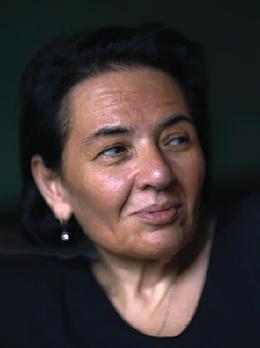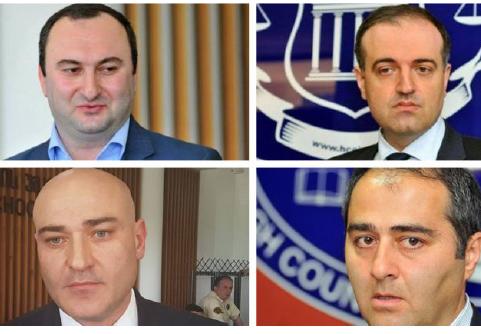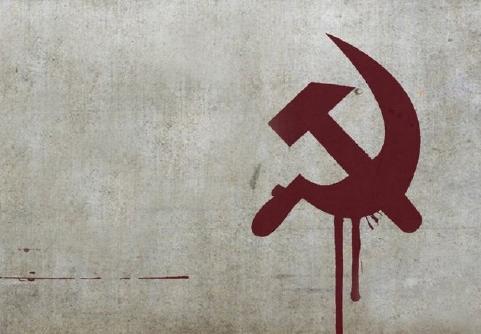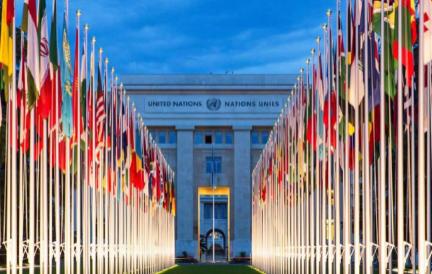
Author : Keti Kurdovanidze

Georgian Europeanism manifested itself in a brief but significant episode of modernism in the early twentieth century. Nevertheless, Georgian modernism did not repeat the paradigm of European modernism, which was completely devoid of national sentiment.
Georgian modernism developed individually, making the national theme the subject of reflection. This did not necessarily mean a break with the wider European cultural context, as shown by the Bolsheviks’ fierce struggle against any avant-garde ideas with a Western touch after they came to power. Moreover, the Russian authorities saw the persistence of a strong national character in Georgian modernism as a potentially dangerous trend. Therefore, in the wake of general repression, the modernised Russian Empire found memory erasure and falsification of history to be the most effective weapons of war. But it was then that the era of the “revival of memory” began in the West. Henri Bergson’s ideas inspired Marcel Proust creatively, and later Vladimir Nabokov, Sigmund Freud and Carl Jung wrote about the culture of memory. Western culture responded to great social and political changes, but modernism confined itself to the question of subjective memory and used the reflection on it as a medium, an artistic method. A vivid example of this is Marcel Proust’s seven-part novel “In Search of Lost Time”.
Many interesting works are devoted to Proust’s artistic method, concepts, and signs of time.
However, I will focus on one crucial issue here: memory as a catalyst for change and transformation. Proust’s protagonist undergoes constant evolution, and this change is not dictated by external circumstances but by his inner life – shaped by memory, the collaborative effort of the conscious and subconscious based on recollections and impressions.
This doesn’t necessarily imply an attachment to the past for the hero, but rather an attempt to comprehend it. Memory, in this context, serves as a teacher, urging him to interpret the available knowledge. He believes that transcending physical time is possible only by uniting the past and the present. Retrieving lost time equates to surpassing the constraints of time and, consequently, embracing eternity through the creation of a work of art.
Naturally, when we talk about Proust, we do not mean a mechanical memory that cannot revive the past. It is about creative memory. Proust claims that reviving the past is the birth of a person who lives invisibly in each of us, this invisible person is immortal, because it is connected with the creative ability, the driving force of constant renewal, and finding and revealing it in oneself means victory over death.
This is precisely the primary objective of reclaiming lost time: transcending the harsh reality that time inevitably erodes. Triumphing over time equates to overcoming one’s own mortal nature. The author must relinquish his life to bestow it upon his character. Hence, he opts to seclude himself and write a novel. Photos of ancestors, old possessions, and familiar locations are insufficient to bridge us with the past. Remembering is a poignant experience – both for the good and the bad – requiring a reassessment. The good no longer exists, and the bad prompts reflection on how one might have acted differently from the current standpoint.
Although “In Search of Lost Time” is an embodiment of the writer’s subjective memory, Proust does not aim to recount specific events or his own biography. Instead, he endeavors to unveil a different, inner reality to the reader, convincing them that personal development is disconnected from social or historical occurrences, emphasizing the significance of subjective perception.
Proust’s objective is to make not only the characters but also all readers sense the importance of self-reflection, recognizing that inner life holds greater authenticity and that societal factors, institutions, norms, and traditions cannot exert influence without personal will. It is within this realm that true freedom and immortality can be attained. Proust effectively achieves this goal, leading Virginia Woolf to declare, “Proust is my adventure.” This marks the artistic resurgence of subjective memory as the adventure of an entire era, characterized by profound change through a return to memory.
Indeed, following in the footsteps of Proust and thinkers of his era, a significant shift in the Western thinking paradigm commenced, which Georgian modernism unfortunately did not reach. This transformation deeply frightened the Bolshevik government, which had ascended to power through force. Consequently, they waged a particularly brutal and violent campaign against artists. In the context of that time, art stood as the sole remaining valuable entity, where the heartbeat of freedom could still be heard.
Occupation entails more than just the destruction of territorial and institutional independence; it primarily sets out to erode the fundamental pillar of human identity. This process begins with the curtailment and ultimately the obliteration of the historical, cultural, and social memory of a society. The Soviet system, in its association with various states, systematically deprived them of this foundational element. The enduring consequences, as we witness, continue to be painful and catastrophic.
In the 1980s, the role and function of memory underwent a profound transformation. The modernist concept of understanding time became a thing of the past, and the collective nature of memory became associated with postmodernism. Today, the issue of social memory and identity is given more and more attention in cultural studies, museums of memory are built (there is such a museum of occupation in Georgia), monuments are erected, memorial days are established, special brochures are published as facts expressing collective memory, because events that unfolded in Europe after the Second World War concern not only the victims of the war but also the broader issue of reaching consensus on universal values.
In the contemporary Western world, the idea of cultural or historical relativism is gaining ground. The boundary established by modernism between subjective memory and social events is disappearing and is becoming one whole. This is why, when we speak of collective memory, we also mean historical memory, which does not mean that there is no national narrative of its own; on the contrary, small postcolonial narratives, historically and culturally grounded, are created as a counterbalance to the grand narratives of empires, which also implies an awakening of memory suspended by colonialism. Hundreds of articles are devoted to the study of memory every year, accompanied by discussions and debates, although all agree that subjective memory cannot exist outside of social discourse.
Recently, interest in the problems of memory and identity has been observed in our country as well. However, Georgian literature addressed this topic earlier than social sciences. In the 1990s, there were authors who wrote about an identity crisis, about cultural and anthropological degradation, but these topics were lost in the chaos of political events.
The current situation in our country, when independence and hard-earned freedom are once again under threat, reminds us once again that neither then nor now have we understood not only the distant but even the recent past of our country – when the enemy used our history as a weapon of struggle, took advantage of the short memory of a society that had distanced itself from it, and began to manipulate such values, the instrumentalisation of which is always justified for fooling the population of such countries.
It was imperative to counter this unrestrained propaganda and remind society that history, embellished with myths and falsehoods, requires rewriting, while the recent past needs to be revived and comprehended.
Speaking of memory, I cannot help but mention the fiction and documentary prose of Zaza Bibilashvili, recently published in two books by the publishing house “Intellect.” “Delirium” and “Georgian Matrix” share a common narrative thread. They form a comprehensive collection of short stories that bear a striking resemblance to the cinematic method of storytelling and the conceptual understanding of reality by Marcel Proust, albeit within a completely different context.
Similar to Proust, it is not a continuous stream of memories but consists of individual episodes that collectively create a sense of continuity. The past comes alive not only through memory but also through details, dialogue, sounds, landscapes, and objects. Their recurrence consistently transports us back to the past and prompts reflection. However, unlike Proust, these texts underscore the social and political context. Although the author personally witnessed and participated in the events described, his assessments, opinions, or attempts to judge the events are rarely found in the text. The author serves as a narrator rather than a character, an observer rather than an active hero. He selects, systematizes, and presents the events without offering commentary or drawing conclusions, leaving that space for the reader.
Rarely have I encountered an author who gives the reader the right to actively participate in the narrative, pushing the boundaries of authorial competence and making the reader feel that this is their adventure.
“Delirium”, the first book of the two-volume series by Zaza Bibilashvili, echoes the novel-anti-utopia of the same name by American writer Lauren Oliver, which delves into the mechanism of vitality of the totalitarian regime.
People living in an alternative present are taught that love is a disease, or Amor Deliria, i.e., a nervous disorder, and are forced to undergo a procedure to cure it. An 18-year-old girl is looking forward to undergoing the procedure to cure her of this terrible disease, because government propaganda has convinced her that love is the country’s most dangerous enemy. There are opponents of this idea, but they are arrested and severely punished.
opponents of this idea, but they are arrested and severely punished. Despite such terror, the girl falls in love with a young man from the opposing camp and escapes with him from the love-deprived country where they were deceived, bullied, and deprived of freedom.
In contrast to Oliver’s novel, Zaza Bibilashvili’s characters do not run away; instead, they live and adapt to the existing conditions, often unaware that their problems stem from cohabiting with this degraded Soviet culture. The author emphatically notes that our living space is still polluted with the waste of this culture, although the Soviet system has collapsed, but the society has not yet managed to dispose of the debris it left behind. This is why the text feels so familiar and relevant, evoking memories of days gone by with recognizable characters, stories, moral and ethical dilemmas, as well as mental and intellectual parameters.
According to the author, the only non-alternative solution is transformation, and he illustrates this with his own example, showcasing how he changed through continual self-reflection.
The second book of the two-volume set, “The Georgian Matrix”, like Ariadne’s thread, leads us to the way out of the labyrinth. Here the concept of memory is conceptualised in terms of the anatomy of events. How should we be cured, what is the cause of our illness and were we sick at all, maybe we were indoctrinated by the regime, convinced by propaganda? Maybe it indoctrinated us with the very idea that each of us should feel powerless and voluntarily withdraw from the process of collective struggle?
of collective struggle? Has it been designed to erode our unified sense of history and foster self-identification not with common values but with narrow personal interests?
In this part of the text, the author demonstrates how important the role of memory is in those moments when we find it most difficult to concentrate and, as John Locke would say, then the memory begins to operate in the mode of an archive of ideas. It is the actualisation of ideas and their interpretation that we talk about in this part of the two-volume set. The author points out that the actualisation of memory in the modern era is unthinkable without a social and political context, since even the most personal perception cannot be separated from the social context in the era of globalisation. The author also discusses the interpretation of the past, emphasizing that renewal and reflection aid in overcoming identity crises. In this, he echoes David Hume’s concept of identity, asserting that identity is not a static construct established once; rather, it is continually evolving based on time and context. Embracing the inevitability of change is the very solution that will enable us to surmount stagnation, marginalization, and the restriction of ourselves to local interests.
Due to the nature of the text, the author adopts a lyrical-satirical style of narration, as the stories told here are both humorous and dramatic simultaneously. Even small details expressing the identity of the characters, including their spoken language, are meticulously observed. If we categorize “Delirium” as fiction-documentary prose or, more precisely, as a form of edutainment, “Georgian Matrix” serves as an example of one of the popular genres of non-fiction – post-documentary prose.
Regardless of classification, these books are a must-read. They are worth reading not because they deserve numerous accolades, but because they implore us to embrace renewal, encourage change, and remind us that we should reclaim lost time, with each person writing their own book.










